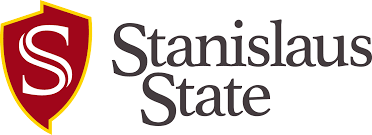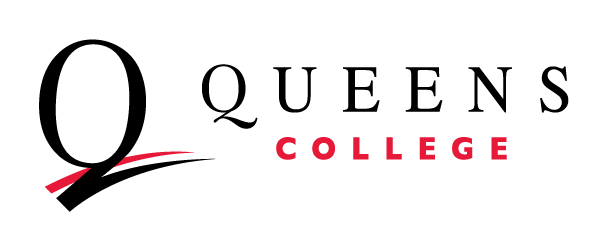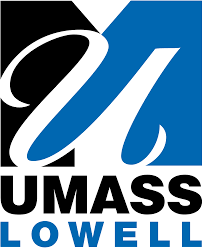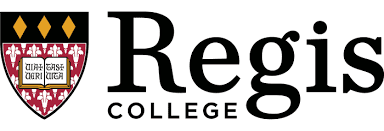Have you heard of Applied Behavior Analysis (ABA)? It’s a super effective scientific discipline that helps improve socially significant behaviors using evidence-based practices. And as more and more people recognize the effectiveness of ABA, there’s a growing demand for skilled behavior analysts.
Professionals in this field work with individuals who have a range of behavioral health issues, from autism to mental health illnesses, and can make a big difference in their clients’ lives. ABA pros typically work in clinical, community, or research settings to provide top-notch interventions.
If you’re interested in pursuing a career in ABA, you’ll be happy to know that many universities and colleges in the US offer Master’s in Applied Behavior Analysis programs to meet the growing demand for skilled behavior analysts. So, let’s dive in and explore the exciting world of ABA!
Applied Behavior Analysis Master’s Programs
Applied Behavior Analysis (ABA) is a rapidly growing field in the United States, providing innovative solutions for the assessment and treatment of behavioral disorders. As a result, there is an increasing demand for qualified behavior analysts who are trained in the principles and practices of ABA. With many universities offering Master’s programs in Applied Behavior Analysis, it can be challenging to find an affordable program that fits one’s needs.
The information presented here is designed to help prospective students make informed decisions about their education and career goals, while also providing affordable access to ABA education in the United States.
Westfield State University – Master of Arts in Applied Behavior Analysis

If you’re considering a career in Applied Behavioral Analysis, Westfield State University offers a Master’s Degree program in the field that may interest you. The program takes 2 years to complete and requires 48 credits. As students progress through the program, they will receive regular updates on their progress and undergo continuous evaluation. It is essential to note that a positive evaluation is necessary to continue with the program.
To cater to busy schedules, the Department of Psychology offers evening and late afternoon courses. However, students should keep in mind that the scheduling requirements for the Pre-practicum, Practicum, and Internship experiences differ. A full breakdown of the program is provided below:
All students must either pass a comprehensive examination or submit a thesis. After successful completion of the program, students are qualified to apply for certification as a Board Certified Behavior Analyst (BCBA) through the Behavior Analyst Certification Board at http://www.bacb.com.
Salem State University – MS in Behavior Analysis

Salem State University offers a Master of Science degree program in behavior analysis that is accredited by the Association for Behavior Analysis International (ABAI) Accreditation Board. The program curriculum consists of 37.5 credits, including nine mandatory seminars, an exam review course, and options for supervised experience, directed study, or master’s thesis.
Students who seek certification from the Behavior Analyst Certification Board (BACB) are required to fulfill additional eligibility criteria and consult the BACB directly. The program’s accreditation fulfills the educational degree requirements to apply for the Board Certified Behavior Analyst (BCBA) exam. The BACB sets its own eligibility criteria, which may include supervision hours. The program expects applied students to fulfill their supervision hours during their program of study.
Missouri State University – Master’s in Science in Applied Behavior Analysis

The joint effort between the Psychology Department and the Department of Counseling, Leadership and Special Education has resulted in the creation of an outstanding Master of Science degree in Behavior Analysis and Therapy. Upon successful completion of the program, students will have met the course sequence and supervised practicum criteria to sit for the national certification examination and become a Board Certified Behavior Analyst.
One unique aspect of the program is the specialized training opportunities for those who plan to work in school settings. Specifically, students will be trained to become experts in applied behavior analysis, enabling them to utilize research-based instructional strategies for special populations, particularly those with Autism Spectrum Disorders, in clinical, school, and home-based settings. Moreover, the program emphasizes developing students’ competencies as scientist-practitioners and researchers in both experimental and applied behavioral science.
Northern Michigan University – Online Master’s Degree in Applied Behavior Analysis

With a maximum cohort size of 20 students, the Applied Behavior Analysis Master’s of Science program at NMU offers a personalized educational experience. This program is designed to meet all educational requirements for licensure and help students obtain the practicum hours required by many states to be eligible for the certification exam.
Over two years of full-time study, students in this program will focus on acquiring the educational requirements for the Board Certified Behavior Analyst (BCBA) credential. BCBAs study how behaviors interact with the environment and develop strategies to promote successful behaviors while addressing less adaptive ones. They work in various settings, including mental health, schools, hospitals, and other human service settings.
The Master’s Program in Applied Behavior Analysis provides opportunities for meeting a portion of the 2,000 Supervised Fieldwork hours required by the Behavior Analyst Certification Board. It also contains a 5th edition Verified Course Sequence (VCS- 50160).
University of North Texas – Master’s in Applied Behavior Analysis

UNT’s groundbreaking Behavior Analysis Master’s program offers a comprehensive education in Behavior Analysis, encompassing: an understanding of applied behavior analysis principles, theory, and research methods, as well as the experimental analysis of behavior; systematic application of behavioral technology principles in real-world settings; and hands-on experience in various fields such as neuro-operant interventions, functional analysis, early autism intervention, animal welfare, college teaching, and social justice.
The Master of Science (M.S.) degree in Behavior Analysis is an in-depth, on-campus program designed to provide students with a comprehensive understanding of the field. Typically taking between 2 to 4 years to complete, the curriculum is comprised of 49 credit hours, ensuring a solid foundation in both theoretical and practical aspects of behavior analysis.
McNeese State University – M.A. in Applied Behavior Analysis

McNeese State University’s Master of Arts in Psychology program, featuring a concentration in Applied Behavior Analysis (ABA), includes both a thesis and an internship. Practicum and internship placements are provided through the McNeese Autism Program and/or the Clinical Applied Behavior Analysis Academy. The Department of Psychology and Counseling also houses human and animal operant lab facilities, allowing students to gain experience in single-subject procedures.
A minimum of half of the total credit hours required for a graduate degree, excluding thesis credits, must be at the 600 level. Credits applied towards the degree must be earned within six calendar years from the time the student first enrolled in the program. No grade below C and not more than 6 credit hours of C work can be applied toward the degree.
California State University Los Angeles – MS in Counseling – Applied Behavior Analysis

The Master of Science degree in Counseling, featuring an option in Applied Behavior Analysis, educates students in the principles, concepts, and applications of behavior analysis within a counseling framework. Designed for individuals planning to work as behavior analysts with individuals with intellectual and developmental disabilities in various settings, this program also helps prepare students for pursuing a doctoral degree in behavior analysis.
Each year, approximately 24 students are accepted into the program, which is situated within the College of Education’s Division of Special Education and Counseling. The current full-time faculty members are Dr. Michele Wallace and Dr. Jennifer Weyman. Students applying for the certificate program in Applied Behavior Analysis in Educational Settings should already possess a master’s degree or be currently enrolled in a master’s degree program.
Note: Students interested in qualifying for the certification exam should verify that their master’s degree meets the requirements set by the Behavior Analyst Certification Board (www.bacb.com).
California State University Northridge – M.S. in Applied Behavior Analysis

This two-year program is designed to provide a comprehensive curriculum that covers the principles of behavioral theory and their practical application in the real world. Through on-the-ground training in clinical settings arranged by CSUN, students will gain the necessary skills to take on leadership positions in the field. With guidance from experienced faculty, you will learn how to conduct thorough behavioral assessments, implement evidence-based interventions, and consult with parents, caregivers, and school personnel while following ethical guidelines.
In addition to being cost-competitive, this degree also prepares students for admission into some of the nation’s most prestigious ABA doctoral programs. Upon completion of the program, 90% of their graduates secure employment in the field of Behavior Analysis, reflecting the program’s success in preparing students for real-world work experiences.
California State University Stanislaus – Master of Arts in Behavior Analysis

The Master of Arts in Applied Behavior Analysis is a two-year graduate program that provides students with knowledge and practical experience to apply behavior analysis in various areas of society. Its primary objective is to prepare students to become Board Certified Behavior Analysts (BCBAs), and it achieves this by providing a balanced integration of theory, research, and practice that reflects the behavior analytic approach.
Successful completion of the Master of Arts degree in Applied Behavior Analysis requires a minimum of 40 units, which includes coursework, a practicum in behavior analysis, and a thesis that is collaboratively designed with their thesis chair. The program requires students to maintain a minimum grade point average of 3.0 in all coursework to remain enrolled. Overall, the Master of Arts in Applied Behavior Analysis program provides students with a solid foundation in behavior analysis, preparing them to make meaningful contributions in the field.
California State University Sacramento – Master of Arts in Applied Behavior Analysis

The Master of Arts in Applied Behavior Analysis provides students with a comprehensive understanding of the application of Behavior Analysis in various aspects of society. The program also aims to equip students with the necessary knowledge and skills to become a Board Certified Behavior Analyst® (BCBA®). This graduate program takes a behavior analytic approach, which emphasizes the integration of theory, research, and practice.
To obtain their master’s degree, students are required to complete a thesis within a specified timeframe. Students are advised to check with the graduate office for the formatting requirements of the thesis document. The thesis is an empirical study conducted in collaboration with the student’s thesis chair, and it follows a specific format that includes Introduction, Methods, Results, and Discussion chapters.
University of Houston Clear Lake – Master of Arts in Behavior Analysis

The program emphasizes the application of learning principles and interventions for individuals with neurodevelopmental disabilities. Students will gain hands-on experience through practicum and research opportunities in various settings. As a graduation requirement, all students must complete a significant research project.
To enroll in the Behavior Analysis program, interested students must complete a formal application. For more information about the program and the application process, please contact the program director, Dr. Dorothea Lerman, at behavioranalysis@uhcl.edu. The application packet contains detailed instructions regarding admission requirements, which include a resume, a statement of goals, and reference letters.
Saint Elizabeth University – M.A. in Applied Behavior Analysis

The online Master’s in Applied Behavior Analysis program is tailored for graduate students who want to advance their knowledge and proficiency in the field of applied behavior analysis. It is also ideal for professionals who work with individuals who have autism, developmental disabilities, and behavior challenges, as well as those planning to take the Board Certified Behavior Analysis exam.
By completing this program, graduates will be well-equipped for careers in various industries, including education, healthcare, and business. The expertise gained in applied behavior analysis is valuable in fields such as counseling, social work, speech pathology, teaching, behavioral consulting, therapy, and program management.
To apply for the program, a 500-word personal statement is required, highlighting the reasons for pursuing a graduate degree, long-term goals, and how a graduate degree can help achieve them. This online Master’s in Applied Behavior Analysis program is a convenient and flexible way for individuals to enhance their knowledge and skills in this growing field.
Jacksonville State University – Master of Science in Psychology with an emphasis in Applied Behavior Analysis

Jacksonville State University offers a Master of Science in Psychology program with a focus on Applied Behavior Analysis (ABA). This program provides students with a strong foundation in ABA principles, research methods, and techniques. The program is offered in a flexible online format, allowing students to complete the program at their own pace and on their own schedule.
To earn the degree, students must complete 33 credit hours of coursework, which includes a practicum experience. The program is designed to prepare students for the Board Certified Behavior Analyst (BCBA) certification examination. In fact, the program boasts an 83% pass rate for first-time BCBA certification candidates.
Queens College CUNY – Master’s in Applied Behavior Analysis

The ABA MA program at this university is a licensure qualifying program registered with New York State, adhering to Subpart 79-17 of the New York State Commissioner’s Regulations. Prospective students should note that additional requirements outlined by NYS Education Law Title VIII, Article 167 and Commissioner’s Regulation Subpart 79-17 must be met.
Furthermore, the curriculum is pre-approved by the Association for Behavior Analysis International (ABAI) as a verified course sequence (VCS) for the 4th and 5th edition task lists.
Students are required to complete all courses listed under required courses and choose 9 credits of elective courses. In addition, students may either opt to complete the comprehensive exam or a thesis project.
University of South Florida – Master of Science in Applied Behavior Analysis

The Master of Science in Applied Behavior Analysis (ABA) is an interdisciplinary program that spans 45 credit hours. The program aims to equip students with the skills to excel in fields like education, developmental disabilities, autism, mental health, child protective services, rehabilitation, and business and technology. It is housed within the College of Behavioral and Community Sciences and provides students with practical supervision and coursework that spans across three colleges.
Upon graduation, students who pass the BACB exam become Board Certified Behavior Analysts and are well-equipped to obtain job placements immediately in the field. In addition, the program encourages and supports students to publish research articles in the field’s peer-reviewed journals. The program can be completed within two years, and graduates are prepared to make a positive impact on the lives of individuals and communities through their work in behavior analysis.
Francis Marion University – M.S. in Applied Psychology with an emphasis in Applied Behavior Analysis

The MSAP/ABA Masters of Science program at Francis Marion University includes a 7-course sequence in Applied Behavior Analysis, which has been verified by The Association for Behavior Analysis International as meeting the 5th Edition coursework requirement for eligibility to take the Board Certified Behavior Analyst® (BCBA) examination. This 7-course sequence is also available to those who already have a Master’s degree and want to meet the coursework requirement for BCBA certification.
To be admitted to the program, students must apply and meet the admission requirements. Most courses and practicum experiences take place during the day, although a select few courses are offered in the evenings. The courses blend classroom activities and experiential training to provide students with a well-rounded education in both theory and practical applications of psychological knowledge.
University of Maryland Baltimore County – Master’s in Applied Behavior Analysis

The UMBC M.A. track in applied behavior analysis is a response to the growing demand for accountability in service delivery in the mid-Atlantic region. The program is a collaboration between the UMBC Department of Psychology and the Kennedy Krieger Institute’s (KKI) Department of Behavioral Psychology, creating a rigorous program in applied behavior analysis. The track is accredited by the Association of Behavior Analysis International and offers a Behavior Analyst Certification Board Verified Course Sequence, preparing students to take the BCBA certification examination.
Recently, the program director, Dr. John Borrero, held an open house to showcase and provide details about the M.A. in Applied Behavior Analysis. If you missed the event, don’t worry, you can access the recording of the presentation and the lively Q&A through this link:
https://umbc.webex.com/umbc/lsr.php?RCID=3a0818c6063ce9e4a48b66d280784a7b. Join the program and become a well-prepared behavior analyst, ready to meet the growing demand for accountability in service delivery.
Florida Institute of Technology – Master’s in Applied Behavior Analysis

By obtaining a Master of Science in Applied Behavior Analysis from Florida Tech, individuals can make a difference in the lives of those struggling with a wide range of behaviors, from everyday social interactions to more complex issues such as autism spectrum disorders and substance abuse. Florida Tech’s program offers a systematic, scientific approach that prepares students to understand and work effectively with people from diverse backgrounds.
Through class discussions, research studies, and internships, students gain valuable knowledge and skills. Faculty members, who are making a difference in the world through their research, professional services, and community activities, provide instruction.
The program is flexible, offering daytime, evening, and weekend classes, and has two campus locations to choose from: Florida Tech’s main campus or the Orlando Graduate Center, located in the Baldwin Park area of Orlando. For Orlando campus applicants with an undergraduate GPA of 3.3 or above, the GRE requirement may be waived by the Admissions committee.
Chicago School of Professional Psychology – M.S. in Applied Behavior Analysis

The Applied Behavior Analysis (ABA) master’s program at The Chicago School offers both full-time and part-time options, with the full-time program spanning 2 years and the part-time program requiring 3-4 years for completion. Students in this program will receive a strong foundation in behavioral psychology principles and develop the skills necessary for data-based decision making and program development. Using modern technologies, students will be challenged to become leaders in the field of applied behavior analysis.
Completion of the M.S. Applied Behavior Analysis program satisfies the educational requirements needed to pursue a Board Certified Behavior Analyst® (BCBA®) certification. Graduates must pass an exam and complete an application process that may include fees, a background check, and documentation of completed coursework and supervised experience.
For those interested in conducting research or pursuing doctoral studies, the thesis option, known as the Advanced Research Project, is available.
Long Island University Post – M.A. in Behavior Analysis

The discipline of Applied Behavior Analysis is well-established among the helping professions, boasting a mature scientific knowledge base, recognized standards for evidence-based practice, unique service delivery methods, educational and experience requirements for practitioners, as well as established sources of requisite education at the university level.
To complete the MA in Behavior Analysis, 33 credits are required and can be fulfilled within 15 months. Classes are typically held in the evenings after 4:30 pm, either face-to-face, blended, or online, depending on the course content. With such licensure, individuals can provide services to persons with autism, autism spectrum disorders, and related disorders based on a diagnosis and prescription from a licensed or authorized provider.
Bay Path University – M.S. in Applied Behavior Analysis

The Applied Behavior Analysis (ABA) Master’s Degree program at Bay Path University offers a wide range of program options and concentrations to choose from. Students who enroll in the ABA program at Bay Path can choose from various degree options depending on their interests and qualifications.
These include the 48-credit MS in ABA, 51-credit EdS in ABA for candidates with a related master’s degree, and four different 60-credit MS in ABA concentrations, including Autism Spectrum Disorders, Supervision, Training and Organization Behavior Management (OBM), Applied Verbal Behavior, and Trauma-Informed Practice.
All of these program options provide high-quality, graduate-level instruction in Applied Behavior Analysis that aligns with the BACB® 5TH Edition Task List. Additionally, each program fulfills all supervised fieldwork requirements included in revised fieldwork standards, including both restricted and unrestricted hours completed.
University of Texas San Antonio – M.S. in Behavior Analysis

The Behavior Analysis M.S. program trains graduate students to become scientist-practitioners who can provide high-quality services to all populations that benefit from behavior analysis. Students will learn the basic principles of learning and develop the competency to treat children, youth, and adults in community, clinic, hospital, and educational settings as consultants. The program offers approved coursework and practicum opportunities that prepare graduates for Board Certified Behavior Analyst (BCBA®) eligibility.
Typical clients may include individuals with developmental or other disabilities that impact their prosocial skill development (such as Autism, Emotional Disturbance, Conduct Disorder, Obsessive-Compulsive Disorder, Phobias), as well as individuals without disabilities who require systematic support to develop prosocial skills and behaviors.
Georgia State University – Master of Science in Applied Behavior Analysis

As part of the program, students will have the opportunity to collaborate with faculty members, participate in practicum internships, and build lasting professional relationships within a cohort model. You will learn client-centered responsibilities, including problem identification, intervention methods, implementation, management, and supervision. The program also covers important foundational knowledge, such as the Behavior Analyst Certification Board (BACB) Professional and Ethical Compliance Code for Behavior Analysts.
To ensure the highest level of quality education, the Association for Behavior Analysis International has verified the program course sequence toward the coursework requirements for eligibility to take the Board Certified Behavior Analyst® examination. Note that additional requirements must be met before students can be deemed eligible to take the examination.
For those who have already obtained a master’s degree and are interested in taking coursework toward certification as a behavior analyst, there is a non-degree version of the program available. Please note that pass-rate data are not published for sequences with fewer than six first-time candidates in a single year or for sequences within their first four years of operation. Current and potential students may visit the BACB’s University Pass Rates page for current pass rates.
University of Nebraska Medical Center – M.S. in Applied Behavior Analysis

The Applied Behavior Analysis program at the Munroe-Meyer Institute and University of Nebraska Omaha equips students with a behavior analytic orientation to offer essential services to children and adolescents, particularly those with behavioral and neurodevelopmental disabilities. The program offers practicum hours in clinical settings at the Munroe-Meyer Institute, local school districts, and community agencies in Nebraska. In addition, candidates can gain 1,500 hours of field experience under program faculty supervision.
This collaborative program is managed jointly through the UNO Psychology Department and the UNMC Munroe-Meyer Institute (MMI). The course sequence has been verified by the Association for Behavior Analysis International for eligibility to take the Board Certified Behavior Analyst® examination.
Arizona State University – Master’s in Applied Behavior Analysis

The Arizona State Department of Psychology’s Master’s in Applied Behavior Analysis is making a difference for those who need it most. The program equips students with the necessary skills to assist children and adults with autism spectrum disorders and behavioral issues. This full-time, two-year MS program offered by the Department of Psychology is scientifically based and meets the Behavior Analyst Certification Board® fifth-edition task list for coursework with 345 classroom hours and 2,000 hours of supervised practicum fieldwork.
Graduates can sit for BACB® certification and, once certified, are eligible for state licensure. The program’s learning outcomes encompass three major areas identified by the certification board: basic behavior-analytic skills, client-centered responsibilities, and foundational knowledge.
Florida State University Panama City – Master’s in Psychology Applied Behavior Analysis

FSU Panama City’s five-semester master’s program in applied behavior analysis is accredited by the Association for Behavior Analysis International and has received verification from the Behavior Analyst Certification Board (BACB) for its curriculum and practicum. The program is limited-access and provides all students with a tuition waiver for working at approved behavior analytic agencies, including the on-campus Early Childhood Autism Program. This hands-on experience allows students to build a portfolio showcasing their behavior skills while also reducing tuition costs.
Graduates of the program have several career options available to them. Board Certified Behavior Analysts (BCBAs) can work in various areas, including autism, behavior and learning disorders, developmental disabilities, performance management, child abuse and neglect, behavioral safety, school consultation, and language development.
University of Massachusetts Lowell – Master of Science in Applied Behavior Analysis & Autism Studies

The Master of Science in Applied Behavior Analysis & Autism Studies program offers two degree pathways: Applied Behavior Analysis (ABA) and Autism Studies (AS). The ABA option is designed for students interested in the science of behavior analysis, seeking national Board Certified Behavior Analyst (BCBA) certification, and obtaining licensure as an Applied Behavior Analyst (LABA) in the Commonwealth.
On the other hand, the AS option is intended for students interested in pursuing research careers in autism and related fields or preparing for doctoral-level study. UMass Lowell undergraduate students with a 3.000 GPA or higher can save both time and money by earning a bachelor’s and a master’s degree in as little as five years. They can either continue their studies from the bachelor’s to master’s level within their own department or apply to a program in a different department to acquire a set of skills that align with emerging workplace needs and their academic interests.
University of California Riverside – Master’s in Education in Applied Behavior Analysis

Ranked No. 9 in the state by the Applied Behavior Analysis Programs Guide, UCR’s graduate program in Applied Behavior Analysis provides comprehensive training in applying behavior principles to enhance the behavioral health of children and adults. It is specifically designed to equip individuals, such as special educators, school psychologists, paraprofessionals, and other behavioral health providers, with the skills to provide effective behavioral support services to students in both educational and clinical settings.
Starting with the note that the program is only available in the Fall, the program length is 1.25 years, and follows a cohort model to provide a sense of community and support among students. The program is taught in-person on the Riverside campus, providing students who prefer a traditional classroom setting with a convenient option. To ensure that students have the necessary education and training to practice Applied Behavior Analysis, they are required to complete a Board Verified Course Sequence.
University of Massachusetts Dartmouth – Master of Arts in Applied Behavior Analysis

UMass Dartmouth provides a Master of Arts in Psychology program with a focus on Applied Behavior Analysis (ABA) that can be completed in just 6 semesters. The program features blended courses, combining both online and in-person instruction, which meet faculty and coursework standards verified by the Association for Behavior Analysis International® (ABAI).
This hybrid style of learning accommodates the needs of today’s students, offering part-time study with flexibility to complete the 36-credit program within three years. UMass Dartmouth also offers a two-year, 24-credit Applied Behavior Analyst Graduate Certificate for professionals who have already earned a master’s degree in education or psychology. This certificate program satisfies the academic requirements to sit for the BCBA exam.
Western Michigan University – M.A. in Applied Behavior Analysis

The Behavior Analysis graduate programs offer intensive training in the foundations of behavior analysis, with specialized areas of focus including autism, developmental disabilities, research, pharmacology, neuroscience, gerontology, safety, and medicine. Students in the program follow a Verified Course Sequence (VCS) approved by the Association for Behavior Analysis International (ABAI), providing them with the necessary coursework and practicum experiences to pursue certification as a Board Certified Behavior Analyst.
In addition, the institution submits annual reports that provide statistical data and information on the program, faculty, and students. If students wish to transfer classes from their MA degree program into the Ph.D. program, they can be considered for acceptance after admission to the program.
Southern Illinois University Carbondale – M.S. in Behavior Analysis and Therapy

Available to students of all backgrounds, the Master of Science in BAT degree offers options for both on-campus and fully online learning. The 45-hour program covers the fundamentals of BAT, legal and ethical issues, observation methods, behavior consultation and management, research tactics, and applications of behavior analysis. Students can choose from a range of elective courses, including topics such as verbal behavior, radical behaviorism, and experimental analysis.
To complete the graduate degree, students must either complete an empirical thesis or a pre-approved research paper. While the curriculum is the same for both on-campus and online students, on-campus students have access to research opportunities, clinical experience, and internships within the facilities or local area. Moreover, nearly all on-campus students have received graduate assistantships, which cover tuition costs and make this program an affordable option.
Teachers College at Columbia University – M.A. in Applied Behavior Analysis

Upon successful completion of this program, graduates will be certified in both general and special education from birth to Grade 6 in New York State and other reciprocating states. Moreover, students will be eligible to sit for the NYS licensure exam in ABA. The M.A. core courses satisfy the requirements to take the Board Certified Behavior Analyst (BCBA) exam.
To gain practical experience, all students will be placed in teacher assistant positions in model schools and classrooms that utilize teaching as applied behavior analysis. The program is accredited by the Association for Behavior Analysis International Accreditation Board.
All M.A. students are required to complete two years of full-time internship in CABAS® model Research and Development schools. In addition, students must fulfill liberal arts requirements for NYS teacher certification by completing 6 credit hours of science, 6 credit hours of math, 6 credit hours of history/ELA/social studies, and 6 credit hours of a foreign language. AP credits earned in high school or demonstration of proficiency through an exam or CLEP are acceptable.
William James College – M.A. in Applied Behavior Analysis

The Master’s in Applied Behavior Analysis and the Certificate in Applied Behavior Analysis at William James provide an education focused on behavior principles and essential skills for designing, implementing, and evaluating behavioral interventions.
With concentrations in African & Caribbean Mental Health, Children & Families of Adversity, Global Mental Health, and Latino Mental Health, the program offers a comprehensive and diverse learning experience. This training prepares you to fulfill the coursework requirements for the licensure exam, allowing you to become a Board Certified Behavior Analyst (BCBA). You’ll be equipped to pursue careers in education, mental health, clinical, and other human-service settings, such as school-, community-, and home-based environments, as well as in- and outpatient hospitals and clinics.
Regis College – M.S. in Applied Behavior Analysis

The Regis College Master of Science in Applied Behavior Analysis (ABA) program utilizes active responding role-play, peer presentations, and comprehensive practicums to deepen the learning experience in the field of applied behavior analysis and better address the unique needs of children and adults with behavioral issues. Recognized nationwide, Regis College’s ABA program offers a dynamic and interactive learning environment, exceptional faculty, and guaranteed field experience – all leading to personal and professional satisfaction and success.
To help reduce barriers to earning a degree, the program is available both on-campus and online, making it accessible to students with limited scheduling availability. Most students complete the course of study in just two years. An ideal blend of course formats optimizes learning. Students focus on one course at a time in an intensive eight-week hybridized format. Small interactive classes set the program apart from other universities and provide a lifelong professional network.
University of Southern California – Master of Science in Applied Behavior Analysis

The Association for Behavior Analysis International has verified the courses in this program to meet the coursework requirements for eligibility to take the Board Certified Behavior Analyst® (BCBA®) or Board Certified Assistant Behavior Analyst® (BCaBA®) examination. The program includes 315 instructional hours of coursework in ABA and 1500-2000 hours of supervised fieldwork. Upon graduation, students will have completed all the coursework and most or all of the fieldwork requirements to sit for the Board Certified Behavior Analyst™ (BCBA™) certification exam.
A distinctive feature of the program is the inclusion of two courses in developmental psychology, offering students an up-to-date overview of theory and research in cognitive, social, and emotional development of children and adolescents. Additional elective coursework focuses on child language acquisition, psychopathology, and Autism Spectrum Disorder.
Applied Behavior Analysis Licensing, Associations and Resources
With the increasing demand for ABA services, there are now many licensing boards and associations that regulate the practice of ABA and promote ethical standards. This section provides a comprehensive list of licensing requirements for ABA practitioners in various states, as well as information on national ABA associations and resources for continuing education and professional development.
Whether you are a seasoned ABA practitioner or a student exploring this field, this section will provide you with valuable information and resources to enhance your knowledge and skills in ABA.
Behavior Analyst Certification Board: Established in 1998 as a nonprofit organization, the BACB was created to address the professional certification requirements of behavior analysts, governments, and users of behavior-analytic services.
The BACB’s primary objective is to safeguard consumers of behavior-analytic services by methodically developing, promoting, and distributing professional practice standards. This ensures that certified behavior analysts possess the necessary skills and knowledge to provide high-quality services to their clients.
Ohio State Board of Psychology: Since its establishment in 1972, the Ohio State Board of Psychology has been dedicated to protecting the public by ensuring that practitioners within the field of psychology adhere to high standards. The Board achieves this through various means, including administering examinations, issuing licenses, providing education, investigating complaints, and maintaining accountability for psychologists, school psychologists licensed for private practice, supervised providers, and applicants for licensure in Ohio.
Furthermore, in January 2014, the Board expanded its regulatory responsibilities to include the oversight of Certified Ohio Behavior Analysts, ensuring their practice also meets rigorous professional standards.
Arizona Board of Psychologist Examiners: The Arizona Board of Psychologist Examiners plays a crucial role in ensuring that psychologists and behavior analysts practicing within the state maintain high professional standards. The board is responsible for granting and renewing licenses for individuals to practice psychology or behavior analysis, thus ensuring that only qualified professionals serve the public.
Moreover, the Arizona Board of Psychologist Examiners offers valuable resources for psychologists and behavior analysts, such as providing access to Examination for Professional Practice in Psychology (EPPP) materials, statutes and rules governing the practice, and information on the small business bill of rights. By offering these resources, the board supports practitioners in staying informed about their professional obligations and maintaining ethical practice.
Arizona Psychologist License Lookup: If you need to look up a license for a psychologist or behavior analyst in Arizona, visit the directory page, which offers a convenient and user-friendly Thentia-powered license lookup tool. This tool allows you to search for licensed behavior analysts and psychologists in the state, as well as verify temporary licenses. This easy-to-use resource ensures that you can quickly and efficiently find the licensing information you need for mental health professionals in Arizona.
Behavior Analysis Association of Michigan: The Behavior Analysis Association of Michigan (BAAM) is an organization that supports the use of behavioral analysis principles to help individuals with a wide range of conditions and challenges. The field of behavior analysis focuses on understanding and changing behavior through the application of scientific principles.
One of the main benefits of being a member of BAAM is the opportunity to network with other professionals in the field of behavior analysis. This can be especially helpful for psychologists who are just starting out in their careers or who are looking to expand their practice.
Alaska Board of Behavior Analysts: The Alaska Board of Behavior Analysts is responsible for ensuring that behavior analysts in the state adhere to high standards of practice and ethical conduct. They accomplish this by establishing requirements for education, training, and certification for behavior analysts practicing in the state. The Board also investigates complaints against behavior analysts and takes disciplinary action when necessary to protect the public.
In addition to regulating the practice of behavior analysis, the Board also serves as a resource for individuals and families seeking behavioral services in Alaska. They provide information on the qualifications and credentials of behavior analysts practicing in the state and offer guidance on how to find a qualified provider.
Montana Board of Psychologists: The primary mission of the Montana Board of Psychologists is to protect the public by ensuring that licensed psychologists are competent and ethical practitioners. To achieve this goal, the board establishes and enforces licensing requirements, conducts investigations into complaints of unprofessional conduct or ethical violations, and takes disciplinary action when necessary.
Once licensed, psychologists must adhere to ethical and professional standards set forth by the American Psychological Association and the Montana Board of Psychologists. These standards include maintaining confidentiality, providing competent care, and avoiding conflicts of interest.
Alabama Behavior Analyst Licensure Board: The Alabama Behavior Analyst Licensure Board (ABALB) is a regulatory agency responsible for licensing and regulating the practice of applied behavior analysis (ABA) services in the state of Alabama. The board ensures that only qualified individuals are licensed to provide ABA services and enforces professional standards and ethics to maintain the integrity of the profession.
It is important to note that a license is not required for Registered Behavior Technicians (RBTs). However, RBTs must be supervised by a licensed ABA practitioner to ensure the provision of safe and effective services.
Utah Psychologist Licensing Board: The Utah Psychologist Licensing Board is a unique state regulatory agency that has a particular focus on supporting psychologists in their professional development and providing resources to help them stay up-to-date with the latest research and trends in the field.
One of the ways that the board supports psychologists is through its continuing education requirements. Licensed psychologists in Utah are required to complete a certain number of continuing education credits each year in order to maintain their license. The board provides resources for psychologists to find approved continuing education courses and events, ensuring that they have access to high-quality education and training opportunities.
Florida Association for Behavior Analysis: For over 40 years, FABA has been committed to promoting the ethical, humane, and effective application of behavior principles in various segments of society, including education, business, rehabilitation facilities, and government.
FABA supports behavior analysts, educators, researchers, and students through professional development opportunities such as workshops, seminars, and conferences. They also offer a BCBA certification program, recognized globally as a symbol of excellence in Behavior Analysis. Obtaining a BCBA certification demonstrates high competence and expertise, leading to career growth and higher earning potential.
New York State Association for Behavioral Analysis: Do you know that the New York State Association for Behavioral Analysis (NYSABA) is an organization dedicated to improving the professional development and growth of behavior analysts in New York State? The association provides resources and support that help behavior analysts to deliver effective and ethical services to their clients. Networking events are also offered by NYSABA, providing behavior analysts with opportunities to meet and connect with one another, share ideas, and collaborate on research projects. This collaboration helps to advance the field of behavioral analysis, enabling behavior analysts to stay informed about new developments and practices.
If you are a behavior analyst in New York State, NYSABA is a valuable resource that can help you stay informed, connected, and equipped to provide the highest quality services to your clients.
Texas Association for Behavior Analysis: The Texas Association for Behavior Analysis (TxABA) is a non-profit organization that supports behavior analysts throughout Texas. TxABA provides resources and support to help behavior analysts deliver effective and ethical services to their clients.
To help behavior analysts stay informed and up-to-date, TxABA offers various professional development opportunities such as workshops, webinars, and conferences. In addition to professional development, TxABA provides networking opportunities for behavior analysts. These opportunities allow behavior analysts to connect with one another, collaborate on projects, and stay informed about new developments and practices in the field. This collaboration helps behavior analysts deliver better services to their clients.
New Jersey Association for Behavior Analysis: The New Jersey Association for Behavior Analysis (NJABA) is an invaluable asset to behavior analysts across the state. This organization provides an array of professional development opportunities, networking events, and advocacy initiatives that are designed to keep behavior analysts well-informed, connected, and equipped with the tools needed to deliver exceptional services to their clients.
NJABA’s commitment to promoting policies that support the use of behavior analysis in a wide range of settings, including healthcare, education, and social services, ensures that behavior analysts can provide ethical, effective, and evidence-based services to their clients. This advocacy helps to advance the use of behavior analysis in New Jersey and beyond, ultimately benefiting those who receive these services.
Massachusetts Association for Applied Behavioral Analysis: MassABA functions as a professional association committed to safeguarding and advancing the interests of behavior analysts in Massachusetts. Its membership is categorized into three levels, each having distinct qualifications and benefits. The professional level, which represents the highest tier of membership, is open to qualified practitioners who hold certifications such as BCBA, BCBA-D, BCaBA, and Licensed Behavior Analyst. Moreover, those who are licensed or practicing professionals in fields where ABA is within the scope of their practice may also join at this level.
On the other hand, the affiliate level is specifically for parents or family members who are enthusiastic about ABA and wish to support the organization’s mission. Lastly, the student level is designed for undergraduate or graduate students who are currently enrolled in ABA or related programs. Members at this level are provided access to various resources, networking opportunities, and events that can help enhance their academic and professional growth.
North Carolina Association for Behavior Analysis: NCABA is an inclusive membership organization that caters to individuals who are passionate about the philosophy, science, application, and teaching of behavior analysis in North Carolina. By joining NCABA, you gain access to a supportive network of behavior analysis practitioners, educators, scientists, and students who are all dedicated to advancing the field.
Through this membership, you will have opportunities to share research findings, educational strategies, best practices, and professional opportunities with like-minded individuals. This platform aims to foster a collaborative environment that facilitates growth and development in the field of behavior analysis in North Carolina.
Kansas Association for Behavior Analysis: KansABA’s primary objective is to promote the science and practice of behavior analysis education and training while upholding the highest disciplinary, professional, and ethical standards. Additionally, KansABA seeks to expand and intensify interest in behavior analysis across the State of Kansas and the Kansas City metropolitan area, which includes Clay, Jackson, and Platte counties.
Through its mission, KansABA aims to improve the quality and accessibility of behavior analysis services and ultimately enhance the well-being of individuals in these regions.
Virginia Association for Behavior Analysis: The Virginia Association for Behavior Analysis (VABA) is an awesome group of professionals dedicated to improving the science, practice, and education of behavior analysis in Virginia. They’ve been around since 1993, and have been providing great opportunities for behavior analysts to connect, learn, and grow.
Members can attend professional development events, workshops, and networking opportunities to learn about the latest research, best practices, and ethical guidelines in behavior analysis. Plus, its members get to hang out with other awesome behavior analysis professionals! VABA advocates for the use of behavior analysis in education, healthcare, and social services. They push for policies that support its integration and raise awareness about its benefits to key stakeholders.
Hoosier Association for Behavior Analysis: The primary mission of HABA is to promote Applied Behavior Analysis in Indiana in a manner that is ethical, effective, and humane. To achieve this objective, HABA organizes an annual conference that emphasizes research and professional practices in behavior analysis.
Moreover, HABA provides opportunities for BCBAs and BCaBAs to earn Continuing Education Units to maintain their certification.
Alabama Association for Behavior Analysis: As a membership-based organization, ALABA offers an annual convention where members can share their scientific and technological achievements. ALABA is an affiliate chapter of the Association for Behavior Analysis International and Association of Professional Behavior Analysts.
Founded in 1992, ALABA aims to promote the ethical and effective use of behavior principles across various segments of Alabama society, such as education, rehabilitation, developmental disabilities, business, industry, and government. ALABA’s primary goals are to promote the profession of behavior analysis, responsibly disseminate best practices in the field, and provide exceptional continuing education opportunities for its members.
Behavior Analysis Association of Mississippi: The primary mission of the organization is to promote and support the practice, research, education, and dissemination of behavior analysis throughout Mississippi. BAAMS aim is to foster connections among providers by offering opportunities for continuing education, social networking, and collaboration.
The website provides valuable information for individuals interested in learning more about behavior analysis in Mississippi. It is highly recommended for providers to register and become a member of the growing organization to take advantage of the various opportunities offered. By joining BAAMS, members will be the first to learn about exciting events and programs hosted by the organization.
Four Corners Association for Behavior Analysis: Are you interested in learning about the Four Corners Association for Behavior Analysis (4CABA)? This professional organization is dedicated to advancing the science and practice of behavior analysis in the Four Corners region of the United States, which includes parts of Colorado, New Mexico, Arizona, and Utah.
So, what does 4CABA do exactly? Well, the organization aims to improve the quality of services provided by behavior analysts in the region through professional development opportunities and networking events. This means that behavior analysts can keep their knowledge up-to-date and learn about the latest practices to provide their clients with the best possible care.
Arizona Association for Behavior Analysis: As a scientific and professional reference group, AzABA offers a community of support for those who identify as scientists or practitioners in disciplines that embrace the principles and practices of behavior analysis. Members can include BCBAs, BCaBAs, RBTs, students, and companies that provide ABA services.
Joining AzABA means having access to a platform for networking, continuing education, public policy, scientific research, and interdisciplinary collaboration. Members have the opportunity to connect with other professionals in the field, participate in continuing education opportunities to maintain certification, stay informed about public policies that affect your work, engage in scientific research, and collaborate with professionals from other disciplines.
Maryland Association for Behavior Analysis: Since its inception, MABA has grown to over 300 members, bringing together behavior analysts from the Mid-Atlantic region, including researchers, faculty, direct care personnel, students, and psychologists. All of whom are passionate about advancing behavior analysis in this area.
When you become a member of MABA, you’ll join a community of professionals who share your passion for the science and practice of behavior analysis. This community includes researchers, experts, and direct care personnel who are dedicated to advancing the field in Maryland and beyond. If you’re interested in being a part of a thriving community of behavior analysts in Maryland, MABA is the organization for you!
Georgia Association for Behavior Analysis: The Georgia Association for Behavior Analysis (GABA) was established with a three-fold mission: (1) to promote behavior analysis among both internal and external stakeholders; (2) to offer continuing education to professionals in the field as well as those outside of it; and (3) to facilitate networking opportunities for behavior analysts in Georgia and individuals interested in behavior analysis.
To achieve its mission, GABA organizes an annual conference where behavior analysts, researchers, and practitioners can come together and share their research findings and clinical experiences. The conference also provides an opportunity for networking, professional development, and continuing education for attendees. Through this annual conference, GABA aims to keep its members updated on the latest research and developments in the field of behavior analysis.
Association for Maine Behavior Analysis: AMeBA, or the Association for Maine Behavior Analysis, is dedicated to promoting the science and practice of behavior analysis through professional development and public outreach. To achieve this mission, AMeBA provides continuing education and networking opportunities for behavior analysts and others interested in the field.
Each spring, AMeBA holds its annual conference, which includes a business meeting for members. Members have the opportunity to attend this meeting and contribute to the organization’s mission of promoting the science and practice of behavior analysis in Maine.
South Carolina Association for Behavior Analysis: SC-ABA’s mission is to advocate for the widespread implementation of applied behavior analysis principles and practices in natural environments for effective treatment delivery. With over 225 active members, the organization is dedicated to promoting high-quality ABA-related services in South Carolina.
Professional organizations, such as the Behavior Analysis Association of Michigan, the Alaska Board of Behavior Analysts, the Georgia Association for Behavior Analysis, and SC-ABA, play a crucial role in supporting applied behavior analysts in their practice. These organizations provide opportunities for continuing education, networking, and advocacy for the field.
Utah Association for Behavior Analysis: UtABA is a professional organization dedicated to advancing the field of behavior analysis in Utah. One of UtABA’s key objectives is to support the professional development of behavior analysts. To this end, the organization offers a range of continuing education opportunities, including an annual conference, quarterly webinars, and information about local events that are relevant to behavior analysis.
These kinds of opportunities enable behavior analysts to stay up-to-date with the latest research and best practices in the field, thereby improving the quality of care they can provide to their clients.
Alaska Association for Behavior Analysis: The Alaska Association for Behavior Analysis aims to promote the science and theory of behavior analysis through research, education, and practice. As a scientific and professional reference and networking group, the organization provides information to a broader audience to achieve its mission. Members can attend an annual business meeting to discuss chapter affairs and participate in education and training programs such as seminars, workshops, and conferences to enhance their professional development.
By promoting the science and theory of behavior analysis, the association is committed to advancing the field and improving outcomes for individuals who benefit from behavior analysis services. With its dedication to research, education, and practice, the Alaska Association for Behavior Analysis plays a vital role in the behavior analysis community and the individuals it serves.
Montana Applied Behavior Analysis: Established in 2013, the Montana Association for Behavior Analysis (Montana ABA) is dedicated to providing support to students and professionals in the field of behavior analysis. The organization’s mission is to promote education, research, and practice in the state of Montana. Montana ABA offers various resources and opportunities to its members, including access to networking events, professional development workshops, and conferences.
Montana ABA also advocates for policies and practices that align with the science of behavior analysis, thereby promoting the delivery of high-quality services to individuals in need of behavior analysis interventions. Through its initiatives and efforts, Montana ABA aims to contribute to the growth and advancement of the field of behavior analysis in Montana.
Arkansas Association for Behavior Analysis: The Arkansas Association for Behavior Analysis is dedicated to supporting students and professionals in the field of behavior analysis in Arkansas. The organization achieves this mission by providing a range of resources and support for its members. One of the key ways in which the association supports its members is through its annual conference. This conference provides a platform for behavior analysts to share their research and best practices, participate in workshops, and engage in networking opportunities.
Furthermore, the Arkansas Association for Behavior Analysis offers members substantially reduced fees for the annual conference, making it more accessible for behavior analysts and students to attend. Members also enjoy discounts on exam preparation materials, which can be extremely beneficial for individuals pursuing certification as a Board Certified Behavior Analyst or Board Certified Assistant Behavior Analyst.
North Dakota Association for Behavior Analysis: In 2012, the North Dakota Association for Behavior Analysis (ND ABA) was established during the first annual ND ABA conference held in Grafton, North Dakota. The organization’s primary objective is to facilitate networking, collaboration, and mutual support among behavior analysts in North Dakota.
Besides, the ND ABA aims to promote and expand the field of Behavior Analysis throughout the state. Through its various activities and initiatives, the ND ABA strives to advance the understanding and application of behavior analysis to benefit individuals and communities in North Dakota.
Oklahoma Association for Behavior Analysis: OKABA’s mission is to provide behavior analysts in Oklahoma with professional support and guidance, promote adherence to the Professional and Ethical Compliance Code, and share evidence-based practices. Their mission includes all aspects of behavior analysis, including applied, basic, and conceptual work, as well as research and practice.
The organization is committed to advancing the field of behavior analysis in Oklahoma by providing resources and opportunities for its members to enhance their professional development and collaborate with other behavior analysts.
Applied Behavior Analysis Data and Mental Health Statistics
Do you ever wonder how data collection and analysis can improve mental health outcomes? Applied Behavior Analysis (ABA) is a scientific discipline that uses evidence-based practices to improve socially significant behaviors, including those related to mental health.
Through interactive examples and case studies, readers will gain a deeper understanding of how ABA data collection and analysis can contribute to our understanding of mental health statistics. We will examine the prevalence and impact of mental health disorders, as well as the effectiveness of various interventions and treatments.
- According to recent research, the prevalence of autism spectrum disorder (ASD) in the United States is estimated to be 1 in 36 children.
- Studies have shown that early intervention and intensive behavioral therapy can significantly improve outcomes for children with ASD.
- ABA therapy has been shown to be an effective treatment for individuals with ASD, with research indicating that up to 50% of children who receive ABA therapy show significant improvement in their skills and abilities.
- Research has also shown that ABA therapy can be effective in treating other developmental disorders, such as Down syndrome and cerebral palsy.
- Mental health disorders, such as anxiety and depression, are common among individuals with ASD, with estimates suggesting that up to 80% of individuals with ASD also experience symptoms of anxiety or depression.
- ABA therapy can be used to treat a range of mental health conditions, including anxiety disorders, depression, and post-traumatic stress disorder (PTSD), with research indicating that ABA interventions can lead to significant improvements in symptoms and overall functioning.
